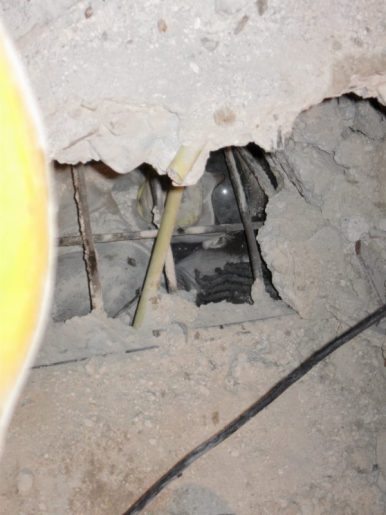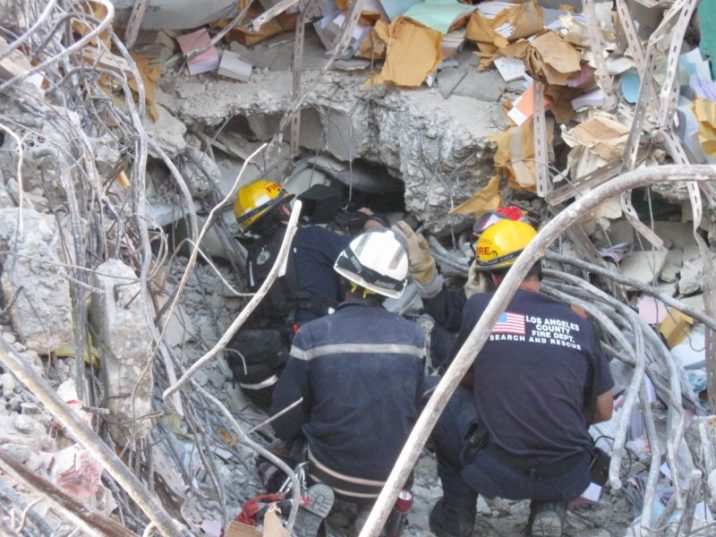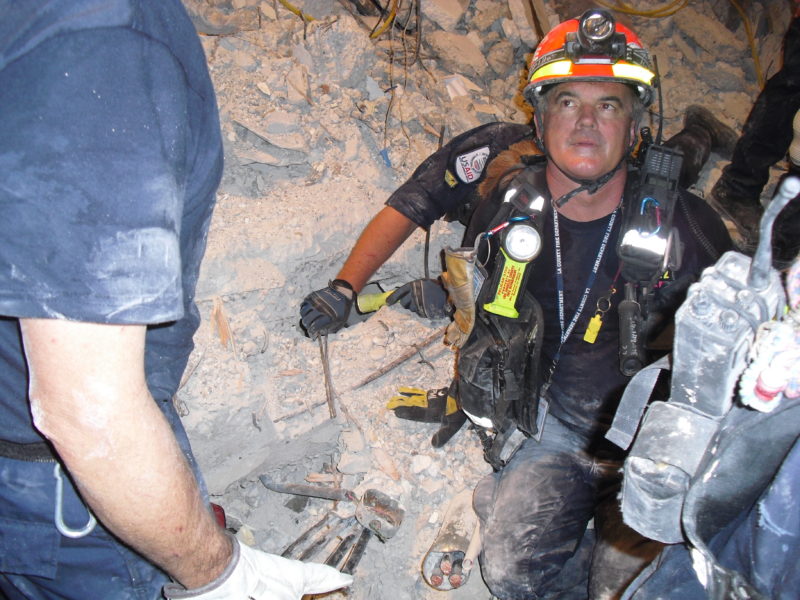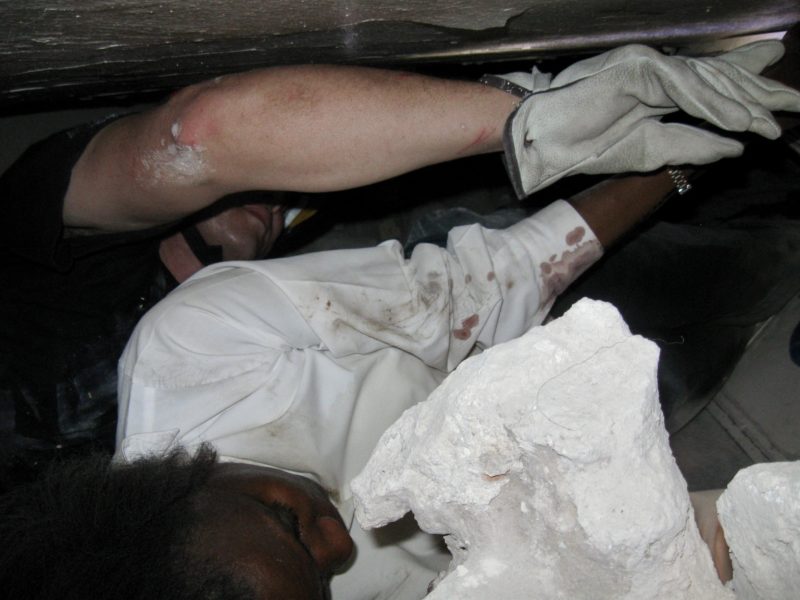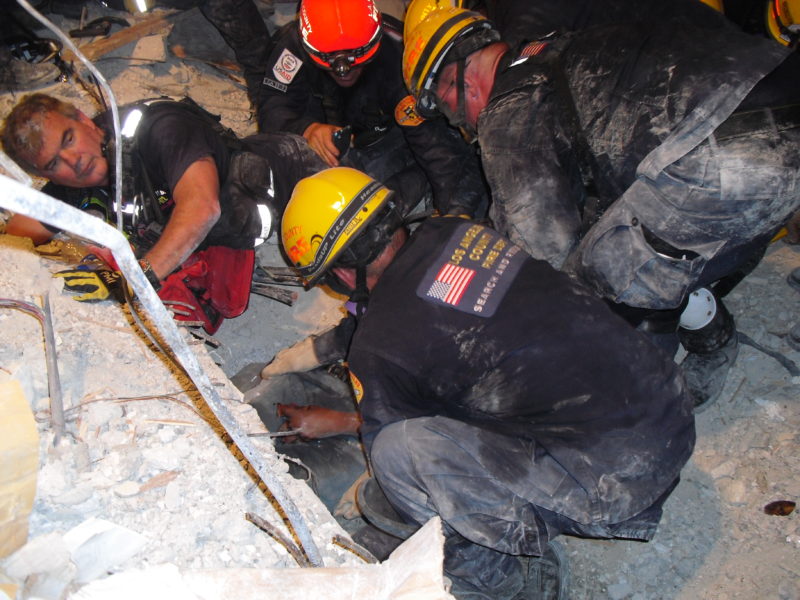In this episode, we talk with Deputy Chief Larry Collins, who is the Cal OES Fire and Rescue Deputy Fire Chief of the Special Operations and Hazardous Material Unit. He oversees the State Urban Search and Rescue (US&R) Response Program which includes response, training, terrorism, Weapons of Mass Destructions related operations, flood and swift-water rescue operations, and hazardous material unit.
Hi experience is extensive and wide-ranging, but we’re going to concentrate our chat on Urban Search and Rescue and what’s he’s learned on some of his more high-profile missions.
Chief Collins joined Cal OES Fire and Rescue Division in November, 2016, after serving 36 years in all ranks at the Los Angeles County Fire Department (LACoFD). He served up to the Battalion Chief position, with many years assigned to some of the busiest fire/rescue companies and battalions, and has 30 years of experience as a paramedic. He was assigned to three active LACoFD battalions and he spent 19 years as a Captain at the department’s Central Urban Search and Rescue Unit, responding by ground unit or helicopter to a wide variety of challenging technical rescues, multi-alarm fires, and major emergencies across Los Angeles County and surrounding counties. He was a Search Team Manager and Task Force Leader on LACoFD’s California OES/FEMA USAR Task Force (CA-TF2), deploying to disasters including the 2015 Nepal Earthquake disaster; the 2011 Japan Earthquake/Tsunami catastrophe; the 2010 Haiti Earthquake, and the 1994 Northridge Earthquake. Chief Collins has been an active member of the FEMA US&R Incident Support Teams (IST), having served since 1995 as a US&R Specialist, Division/Group Supervisor, Branch Director, and Operations Section Chief to help coordinate federal urban search and rescue operations at Hurricanes Sandy, Katrina, Ivan, Ike, Rita, Frances, Gustav, Irene, Dennis, Wilma, Dolly, Earl, and most recently Mathew. As an IST member, he also responded to the 9/11 Attacks, the Oklahoma City bombing, and various national security events and exercises.
Chief Collins left LACoFD with a record of innovative leadership and actualizing informed visions for the future of the fire/rescue services. During his employment with LACoFD, Chief Collins demonstrated his ability to initiate, institute, and successfully manage unique improvements and enhancements to public safety. This included many years of invaluable inter-agency and multidisciplinary experiences, collaborations, and innovations that continue to have local, state, national, and international impact. Chief Collins’ diverse list also includes: founding of LACoFD’s Swift-water Rescue Program and the continued development of LACoFD’s US&R Program, working with Cal OES and the Federal Emergency Management Agency (FEMA) on development of the state and national US&R systems, also working with Cal OES on developing the statewide swift-water rescue team network, mud and debris flow response protocols and rescue procedures, fire ground rapid intervention protocols, active shooter response procedures, aquatic helicopter swift-water workshop rescue evolutions, terrorism planning and response, new approaches to diverse challenges like trench and excavation collapse rescue, large animal rescue, confined space/deep shaft rescue, and the use of technology to improve search and rescue. His experiences even included new designs for firefighter turnouts/bunker gear to improve the speed by which downed firefighters can be rescued.
Chief Collins frequently served as a bridge between emergency response and the sciences, industry, and government agencies helping to innovate multidisciplinary programs like the California Shakeout Earthquake Exercise; the California Catastrophic Earthquake Plan; the L.A. County Tsunami Plan, and the Post-Station Fire Mud and Debris Flow Response Plans. Chief Collins has been able to communicate and articulate the visions, innovations, and lessons learned to fire/rescue service operators and the public by authoring reports, published articles, and books. Ironically, author Dete Messerve based a main character in her novels “Good Sam” and “Perfectly Good Crime” on Chief Collins and his work.
Chief Collins is also a recipient of the Carnegie Hero Fund Award (1983), and the L.A. County Community Protector Award. He was named as firefighter of the year in several of LACoFD’s contract cities, and he received the Lifetime Achievement and team awards from the Higgins/Langley Memorial Fund for Swift-water Rescue.
Links
Urban Search & Rescue Task Forces
Sky News Report on the Rescue of Jeanette: Woman rescued after six days Haiti survivor
BUCK HELM — Man Who Lived 90 Hours In Quake Rubble Is Dead
Loma Prieta earthquake: Mercury News coverage, the Buck Helm rescue



